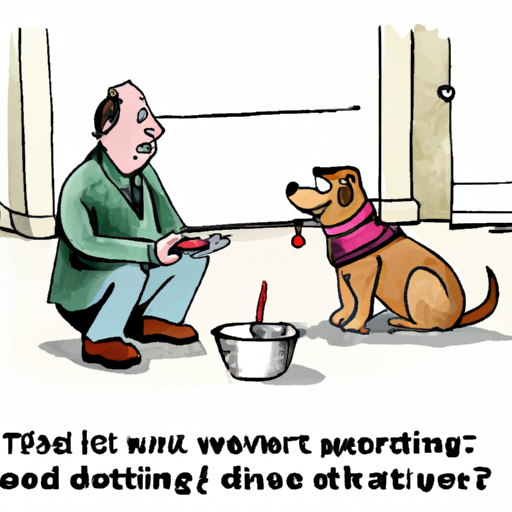As a caregiver to your furry friend, you may have noticed that your dog pants quite often. Have you ever wondered, why do dogs pant? Panting in dogs is a completely normal behavior. However, excessive panting can be a sign of distress or underlying health issues. In this article, we will explore the various causes of panting in dogs, the importance of understanding your dog’s behavior, and when panting can be cause for concern.
- Understanding Normal Panting
- Reasons Behind Excessive Panting
- How Heat Affects Panting
- Medical Conditions That Can Cause Panting
- Frequently Asked Questions
Key Takeaways:
– Panting is a normal dog behavior and a crucial part of how they cool down.
– Excessive panting can be indicative of heat exhaustion, stress, or underlying health issues.
– It’s important to know your dog’s normal panting behavior to identify when something might be wrong.
Understanding Normal Panting
Normal panting in dogs is typically a quick, shallow breathing that helps them cool down. Dogs don’t sweat like humans do; instead, they release heat and cool down by panting. It’s their way of regulating body temperature. You can usually observe this after they’ve been playing or exercising.
Reasons Behind Excessive Panting
While panting is a normal part of a dog’s behavior, excessive panting can be a cause for concern. It could be a sign that your dog is in distress or experiencing discomfort. Here are some common reasons for excessive panting:
- Heat Exhaustion or Heat Stroke: This is a very common cause of heavy panting, especially during summer. Dogs can get overheated easily, and unlike humans who can sweat all over their body, dogs can only sweat through their nose and paw pads, which is not enough to cool them down. Thus, they rely heavily on panting to decrease their body temperature. If your dog has been in hot weather or intense exercise and is excessively panting, it’s crucial to take immediate steps to cool them down and prevent heat stroke.
- Anxiety or Stress: Dogs often pant heavily when they are anxious or stressed. This could be due to a change in their environment, loud noises such as fireworks or thunderstorms, or separation from their owners. If your dog is panting and showing other signs of distress such as pacing, whining, or hiding, they might be anxious. Here are some tips to help your dog cope with anxiety.
- Pain or Discomfort: Dogs can’t tell us when they’re in pain, but there are signs you can look for. Excessive panting, especially when it’s coupled with other symptoms like lack of appetite or difficulty moving, can be a sign that your dog is in pain.
How Heat Affects Panting
Heat and humidity can greatly affect your dog’s panting. Dogs are more susceptible to heat than humans because they have a fur coat and can’t sweat as efficiently. As a result, they rely on panting to cool down. However, when the weather is hot and humid, panting may not be enough to prevent overheating.
If you notice your dog panting heavily after being in a hot environment, it’s crucial to act quickly to prevent heat exhaustion or heat stroke, which can be deadly. Move your dog to a cooler place, provide plenty of fresh water, and if necessary, use a fan or air conditioner to help cool them down.
For more information on how to keep your dog cool in the summer, check out this article on OneTopDog.
Medical Conditions That Can Cause Panting
Several underlying health conditions can cause excessive panting in dogs. These include:
- Heart disease: Dogs with heart disease may pant excessively as their body tries to increase oxygen levels.
- Respiratory disorders: Conditions that affect your dog’s ability to breathe properly, such as pneumonia or lung tumors, can result in panting.
- Cushing’s Disease: This is a condition that affects your dog’s adrenal glands, causing them to produce too much cortisol. One of the symptoms is excessive panting.
- Obesity: Overweight dogs may pant more because their body has to work harder to do normal activities.
If your dog has been panting more than usual and you’re concerned, it’s important to consult with your vet. They can help determine if there’s an underlying health issue causing the panting.
For more information on common dog health issues, OneTopDog has a comprehensive guide.
Frequently Asked Questions
Why is my dog panting at night?
Nighttime panting can be a sign of discomfort or pain. It can also be caused by anxiety or stress. If your dog is frequently panting at night, it’s worth discussing with your vet to rule out any health issues.
Should I be worried if my dog is panting a lot?
While panting is normal in dogs, excessive panting, or panting accompanied by other symptoms such as loss of appetite or lethargy, can be a sign of a health problem. If your dog’s panting seems unusual or excessive, it’s always a good idea to consult with a vet.
What can I do to help my dog if it’s panting a lot?
Ensure they have access to fresh water and a cool, shady place to rest. If they’re panting due to stress or anxiety, provide comfort and try to remove or reduce the stressor if possible. If the panting continues or is accompanied by other symptoms, consult with a vet.
Panting is a crucial part of how dogs regulate their body temperature. However, as caregivers, it’s important to understand what is normal for our pets and when their panting could be a sign of something more serious. By understanding the reasons behind your dog’s panting, you can ensure they stay comfortable and healthy.
For more insights into your dog’s behavior, check out this OneTopDog article on understanding dog behavior.



